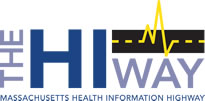Providers and health plans are often not contacted, or not contacted in a timely manner, when their patients are admitted or discharged from hospitals, Emergency Departments, or other care facilities. As a consequence, providers may not realize that they have to coordinate follow-up care with the patient. They may also not have access to relevant medical information related to those visits.
Utilization of ENS and the Statewide ENS Framework will resolve this issue. Participating providers will receive ADT alerts from subscribed care organizations across the Commonwealth, and in particular from Acute Care Hospitals. ENS and the interoperable statewide approach of the framework will improve care coordination and quality across Massachusetts. To learn more about the Statewide ENS Framework, and to subscribe, click here.
The sections below provide an overview of the advantages of ENS, and in particular, the Massachusetts's Statewide ENS Framework.
Interoperable Statewide ENS Solution
The Statewide ENS Framework enables all Massachusetts care providers to subscribe to a single interoperable ENS network to receive ADT alerts from all Massachusetts's Acute Care Hospitals, and other subscribing care facilities, to coordinate care after ADT events. Its integrated statewide approach will unlock the many advantages of ENS listed below.
Improves Continuity of Care
ADT alert notifications will help patients transition between care providers, especially in emergencies. Patients and family don’t need to remember to contact their PCPs concerning treatment received at other facilities, as the information is sent automatically, enabling the PCPs to follow up directly.
Enhances Care Coordination
Clinicians, care managers, health plans and others in the healthcare community receive real-time ADT notifications so they can quickly assess their patients' medical and social needs, implement support where necessary, and direct patients to the most appropriate care settings.
Enhances Patient Engagement
Timely ADT alerts and notifications allow care providers to connect more meaningfully with patients, provide better patient education, and guide them to the right care at the right time.
Supports Medication Education and Reconciliation
Information about patients taking many different medications can be lost in transitions of care, and introducing new medications increases patient risk. ENS can identify and alert for drug-drug interactions and ensure the patient gets the education they need to safely manage their meds.
Decreases Repeat Hospitalizations
Clinicians have the information they need to create a discharge plan that is well-informed and purpose-built, to direct patients to a care system that better meets their long-term needs than repeat hospital visits.
Reduces Long-Term Medical Costs
As disease states progress and a patient is left untreated, the odds of them visiting the emergency room and requiring hospitalization and other expensive interventions increases. Improving care coordination with their care providers reduces avoidable utilization, lowering overall costs of care.
Provides Library of Submitted ADTs
ADT alerts submitted by Acute Care Hospitals will be archived and available for viewing by any authorized party that may need the information in the future to provide care to the same patients.

